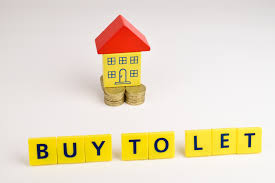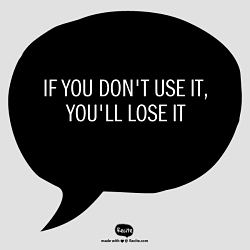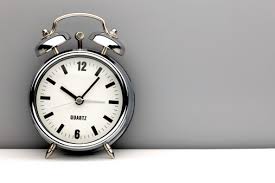The end of the tax year is fast approaching and some of you, whose accounting year end follows the tax year, will soon become embroiled in finalising your small business accounts. But, before you leap into self-assessment mode, it’s worth taking a quick review of your taxes and personal finances.
Here are 6 simple things that you should aim to do before the 5th April 2017 to save yourself some tax and look after that hard-earned income.
1 – If you are thinking of making a capital purchase, do so before the 5th April 2017
If you are a sole trader preparing your accounts to the 31st March or 5th April and you’re planning to spend some money on purchasing capital items, then it would be worth doing so before the end of the tax year.
 What are capital items?
What are capital items?
Capital items are those assets that provide a benefit to your business that lasts more than a year. Examples include phones, computers and similar equipment.
Why is the timing of purchase so important?
The 2016/17 tax year ends on the 5th April 2017 and by incurring the expense before this date, you can get tax relief one year earlier. You will be able to claim Annual investment allowance (AIA) on most of your business assets. This will give you 100% tax relief although you won’t be able to claim AIA on your car.
2 – If you need to incur a business expense, do so before the 5th April 2017
For sole traders, any expense incurred wholly and exclusively for business purposes can be deducted from your income to produce a trading profit. The lower the taxable profit the less tax you will pay.
If you’ve been thinking about paying for anything business related such as stationery, printing cartridges or logo design then try and order or initiate this before the end of the tax year. This way, you will get the benefit of tax relief immediately (effectively one year earlier).
Try not to let the tax tail wag the business dog! Don’t make the purchase if your only motive is to save tax. Only make the purchase if you genuinely need to make it.
3 – Check your employee tax code
For those self-employed who manage a small business alongside employment, you may have recently received a tax code notification from HMRC.
Your PAYE code ensures that the correct amount of tax is deducted from your pay and it is based on information that you have given in previous self-assessment returns or provided by your employer. It can be complicated if you have more than one job or if HMRC are collecting tax on untaxed income or tax owing from a previous year. But, as an employee, you are responsible for checking the accuracy of your tax code. If you need some help you can look up here for more information or contact me.
4 – Use your annual Capital Gains Tax allowance
If you plan to sell any personal assets that have increased in value since you first owned them and they are worth more than £6,000, you may be liable to pay Capital Gains Tax (CGT).
If you are a basic rate tax payer your gain will be taxed at 10% and if higher rated, 20% for the tax year 2016/17. These rates will not apply if you are selling residential property. You can find out more here .
 What personal belongings are relevant?
What personal belongings are relevant?
These are often referred to as chargeable assets and may include shares, fine art, jewellery and second homes. Your main home, lottery winnings and ISA’s are not chargeable assets. You can check whether you have a chargeable asset here.
How can you reduce your CGT tax bill?
All individuals have a small CGT allowance which equates to £11,100 for tax year 2016/17. So, if you plan to sell any chargeable assets, you won’t be eligible to pay any CGT on the gain (the difference between the price you paid for the item when you bought it and the price you sell it for) if the gain is covered by the £11,100 allowance.
If you don’t use your annual allowance you can’t carry it forward to the next tax year so it’s a case of “use it or lose it”.
 You could also think about transferring assets to your spouse before you sell them. Transfers between spouses or civil partners won’t trigger a capital gain and you could use a total allowance of £22,200 between the two of of you. Any transfer though, must be outright and unconditional. This means that the transfer must be a genuine gift with no strings attached.
You could also think about transferring assets to your spouse before you sell them. Transfers between spouses or civil partners won’t trigger a capital gain and you could use a total allowance of £22,200 between the two of of you. Any transfer though, must be outright and unconditional. This means that the transfer must be a genuine gift with no strings attached.
5 – Using the Marriage Allowance
You might want to consider this new allowance which could help reduce your tax bill by £220. You will need to satisfy the following criteria:
- You need to be married or in a civil partnership and born on or after 6 April 1935
- Your income needs to be £11,000 or less
- Your partner’s income needs to between £11,001 and £43,000
 If you satisfy the above criteria, you are allowed to transfer up to £1,100 of your unused personal allowance to your partner. Your personal allowance is the amount of tax-free income you can earn before tax and the current level for 2016/17 is £11,000. Your partner’s new maximum personal allowance will become £12,100 (£11,000 +£1,100). That extra bit of allowance will save £220 of tax.
If you satisfy the above criteria, you are allowed to transfer up to £1,100 of your unused personal allowance to your partner. Your personal allowance is the amount of tax-free income you can earn before tax and the current level for 2016/17 is £11,000. Your partner’s new maximum personal allowance will become £12,100 (£11,000 +£1,100). That extra bit of allowance will save £220 of tax.
The marriage tax allowance started on 6 April 2015, and in 2015/16 was worth £212. For the new tax year starting in April 2016, it’s worth £220. If you claim it now the allowance will be backdated so you can claim last year’s AND this year’s allowance – £432.
It’s easy to claim! You can register here. HMRC will give your partner their allowance automatically either by changing their tax code or if they self-employed, when they submit their Self Assessment tax return.
6 – Use your ISA allowance before the end of the tax year
 Individual Savings Accounts (ISA’s) or NISA’s (New ISA’s) are still one of the most tax efficient ways for you to save your money.
Individual Savings Accounts (ISA’s) or NISA’s (New ISA’s) are still one of the most tax efficient ways for you to save your money.
You don’t pay any income or capital gains tax on your investment and there’s one less piece of paperwork to worry about when it comes to completing your self-assessment tax return.
You can invest in cash, shares or both and the maximum limit for 2016/17 is £15,240.
But, the key thing to remember is that if you don’t use up your limit for 2016/17 you lose it.
Need any help?
If you would like further guidance on any of the above or support with your self-assessment tax, take a peep at how I might be able to help you. Or, you can leave a message for me here.
Keen to sign up for more useful bookkeeping and tax tips? They are FREE and you can unsubscribe at any time. Just drop me a line with your email address here.
Over to you
I hope this post has been helpful? Do drop me a line in the box below if you have any questions. If you’ve enjoyed the post, please consider sharing with other small business owners using the buttons below. It would mean so much if you did. Thank you.
Disclaimer: The information above is only for general guidance and is no substitute for taking professional advice from your accountant or financial advisor.
